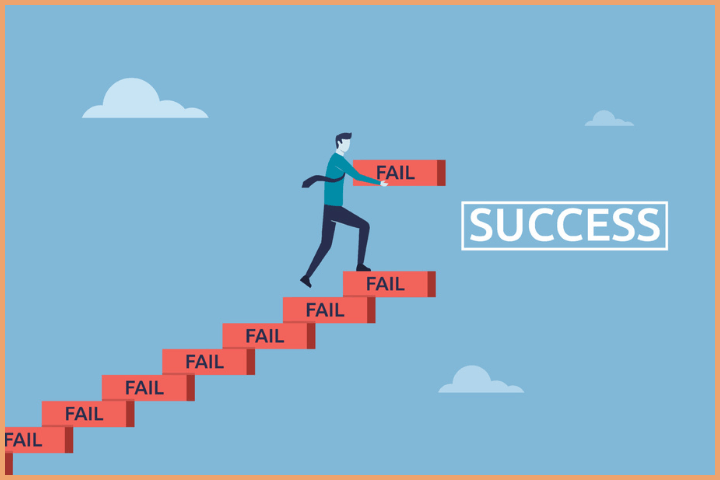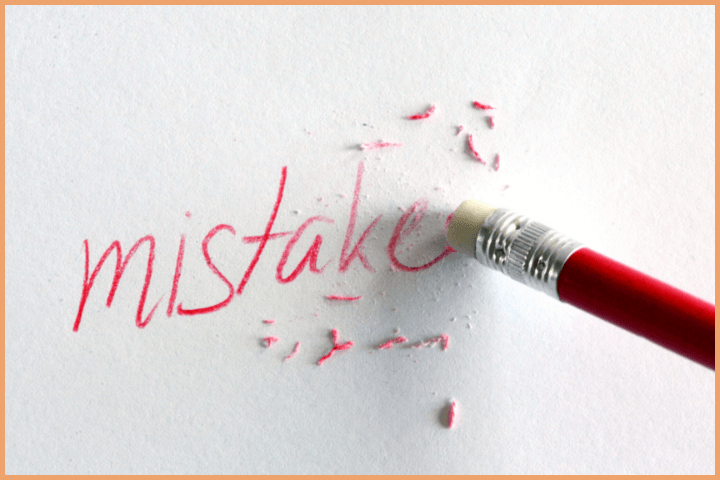Mistakes are a natural part of life. No matter how careful we are, we still make errors. Sometimes, they come from poor decisions, while other times, they are the result of misunderstandings or emotional reactions. However, mistakes should not be seen as failures. Instead, they offer valuable lessons that help us grow. In this article, we will discuss why we make mistakes in life, the lessons they offer, and ways to minimize them.
Why Do We Make Mistakes in Life?
Despite our best efforts, mistakes happen. This is because our minds often work in ways that make us prone to errors. Here are some common reasons:

1. Limited Perspective
We all view the world through our personal experiences and beliefs. This narrow perspective makes it hard to see alternative viewpoints. When we assess situations based only on our own knowledge, we miss important details. For example, if someone reacts sharply, we might assume they are rude without considering they may be having a bad day.
2. Quick Judgments
Our brains are naturally designed to make quick decisions. This instinct helped our ancestors survive dangerous situations, but in modern life, it can backfire. Rushing to conclusions without enough information often leads to wrong assumptions. For instance, labeling someone as unreliable after one late arrival ignores their overall reliability.
3. Emotional Influence
When emotions drive our decisions, they often cloud logic. Anger, sadness, or excitement can cause us to act impulsively. Emotional mistakes, like making promises we can’t keep or saying hurtful words, are common. This is because emotions tend to override rational thinking.
4. Simplifying Complex Information
To process large amounts of information, our brains often simplify it. While this makes decision-making faster, it can also lead to errors. We may overlook crucial details or misinterpret facts. For example, when retelling a story, we might leave out key parts, unintentionally distorting the message.
5. False Pattern Recognition
Our brains are designed to recognize patterns. While this helps us make connections, it can sometimes mislead us. For example, if we experience two job rejections in a row, we might assume we are unqualified, even if the rejections were due to unrelated factors.
6. Overconfidence
Many people overestimate their skills or knowledge. This may result in taking on more than they can manage. When people believe they can do everything perfectly, they become less cautious, which increases the chances of making mistakes.
7. The Illusion of Multitasking
Multitasking is a common cause of mistakes. Although we believe we can do several things at once, our brains can only focus on one task at a time. When we switch between tasks quickly, we become less efficient and more prone to errors.
8. Ignoring Intuition
Sometimes, we ignore gut feelings or inner warnings. When we brush off these instincts, we may make poor decisions. For example, rushing into a business deal despite sensing red flags can lead to regret.
9. Unrealistic Expectations
Setting overly high standards for ourselves often leads to mistakes. When we expect perfection, we become easily disappointed by small errors. This can create a cycle of self-criticism, making us more likely to repeat the same mistakes.
What Can We Learn from Mistakes?
Although mistakes can be frustrating, they are powerful teachers. Each error offers a chance to reflect and grow. Here’s why learning from mistakes is essential:

1. Improves Decision-Making
By reflecting on past mistakes, we gain valuable insights. We become more aware of what works and what doesn’t. This self-awareness helps us make better choices moving forward.
2. Boosts Resilience
Mistakes teach us to bounce back from setbacks. Each time we recover from an error, we become emotionally stronger. This resilience helps us handle future challenges more effectively.
3. Increases Self-Awareness
When we recognize our flaws through mistakes, we become more self-aware. Recognizing our strengths and weaknesses helps us grow and improve.
4. Encourages a Growth Mindset
Seeing mistakes as opportunities rather than failures promotes a growth mindset. It makes us more open to new experiences and willing to step out of our comfort zones.
5. Enhances Problem-Solving Skills
When we analyze mistakes, we develop better problem-solving skills. We learn to evaluate situations more carefully and consider different solutions, which helps us avoid repeating the same errors.
6. Fosters Humility
Mistakes remind us that we are human and imperfect. They teach us humility, making us more compassionate and understanding toward others’ flaws.
How to Reduce Mistakes in Life
While mistakes are unavoidable, we can minimize them by being mindful of the factors that cause them. Here are some strategies to reduce mistakes:

1. Slow Down Your Decisions
Rushed decisions often lead to errors. Take your time when making important choices. Collect information, evaluate the pros and cons, and think thoroughly before making a decision.
2. Consider Multiple Perspectives
Avoid narrow thinking by considering different viewpoints. Listen to others’ opinions, even if they contradict your own. This broadens your understanding and reduces biased judgments.
3. Learn from Past Mistakes
Reflect on your previous mistakes and analyze what went wrong. Recognize patterns or behaviors that played a role in the mistake. Use this awareness to make better decisions moving forward.
4. Prioritize One Task at a Time
Rather than multitasking, concentrate on finishing one task before moving on to the next. This enhances accuracy and minimizes the chances of missing crucial details.
5. Manage Emotions
Develop emotional discipline to prevent impulsive decision-making. When you feel overwhelmed, take a step back and breathe before responding. This prevents emotional mistakes.
6. Be Realistic About Your Abilities
Recognize your limitations and avoid overestimating your skills. Seek help or guidance when needed. Being honest about your capabilities reduces the likelihood of preventable errors.
7. Trust Your Intuition
Listen to your gut feelings. If something feels wrong, take a moment to reconsider. Intuitive insights can help you avoid risky or poor decisions.
8. Practice Self-Compassion
Don’t be too hard on yourself when you make mistakes. Instead of dwelling on failure, focus on what you can learn from the experience. Self-compassion encourages a healthier mindset and reduces the fear of future mistakes.
Mantra to Reduce Mistakes in Life
To make fewer mistakes, we need to cultivate divine qualities. Vallalar emphasized that practicing a godly nature brings us closer to divinity. Here’s how you can reduce mistakes by embracing spiritual principles:
- Develop a Giving Nature: Practice selflessness by helping others without expecting anything in return. True giving comes from the heart, not from the amount.
- Seek Guru’s Guidance: “Karma vinai” (karma’s effect) often pushes us toward wrong actions. To overcome this, we need a guru’s guidance. Following a spiritual mentor helps us make wiser choices.
- Destroy Self-Pride: When we let go of self-pride, divine power automatically grows within us. Just like a weight balance scale, when one plate goes down, the other rises. As we destroy ego, our divine nature increases.
Growing Through Life’s Mistakes
Mistakes are not failures; they are valuable lessons that shape us into better individuals. By embracing them with humility and self-awareness, we develop wisdom, resilience, and compassion. When we align with divine principles, seek spiritual guidance, and let go of ego, we naturally reduce the mistakes we make in life.
So, the next time you make a mistake, remember that it is simply a stepping stone toward growth. Let it serve as a reminder that you are growing, learning, and becoming your best self.

